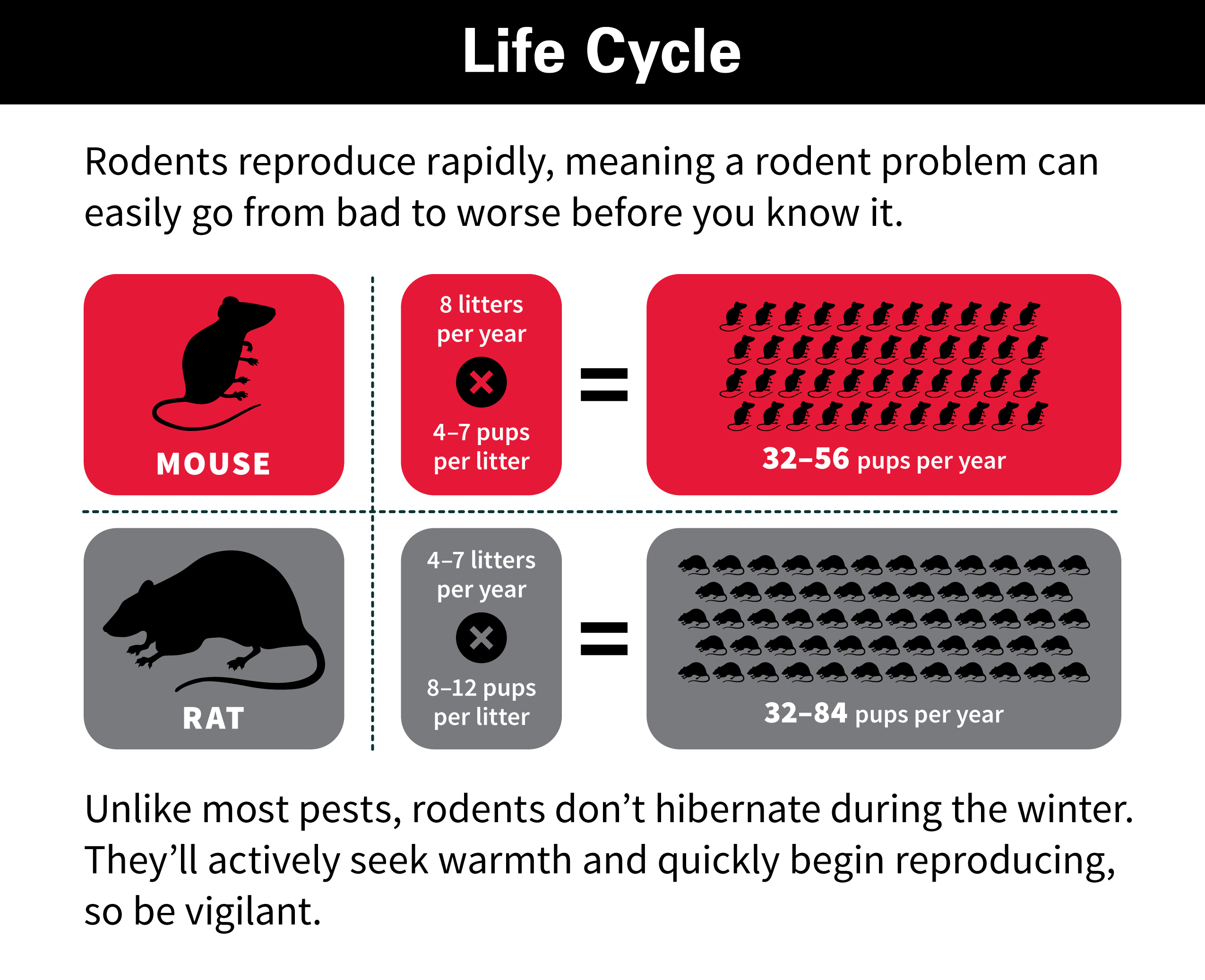Rodents
Rodents are a group of nuisance pests that includes mice, rats, and squirrels. These animals can contaminate food, damage property, and spread disease.
Rats cause a lot of damage. As the teeth of rodents continue to grow over their lifetime, they need to gnaw on hard substances such as lead and plastic pipes, insulation material and electric wiring. This habit increases the risk of short circuits and fires. In addition to this, they transmit a number of dangerous diseases such as Salmonella, Leptospirosis (Weil's disease), Tuberculosis and even tape worms.
It is extremely serious if rats are getting into your home even if they are not entering a direct living area. Any rat problem inside the home must be treated urgently. Rats in the garden and other external areas can also be a high risk, particularly in areas used by children or pets. The larger rat species such as bandicoot rats can also damage plants with extensive burrowing activities. It is important to get rid of rats in the garden to reduce the risk of them trying to enter the home. Special care is needed for properties with integral garages or with dog or cat flaps as rats can use these to get into the home.

Signs of rat problem
Rats are nocturnal and usually hide from humans. The typical signs of a rat problem in the home are:
- Scratching noises in walls or under the floor as rats scurry around.
- Droppings: rats leave dark, tapered droppings about 10-14mm long.
- Distinctive smell: rats leave an ammonia-like smell that will be particularly strong in enclosed areas such as under cupboards.
- Bite marks: rats have teeth that grow continuously and gnaw on wood and plastic to keep them trim. Rats can even cause fires by chewing through cables.
- Ripped food packaging: rats will tear open food which may leave teeth marks.
- Nests: rats build nests in warm, hidden places using shredded material such as newspaper and fabrics. Nests will often contain young rats.
- Burrows: in gardens, rats will dig burrows especially in compost heaps or under sheds. They will also build nests under garden decking.
- Smears: build-up of dirt and grease from the rat's fur, commonly on walls and surfaces where rats commute.
How to keep rats away
Rats are common in Indian cities and metropolises and the first priority to prevent a rat infestation is to proof your home. Young rats can get through holes less than 1cm in diameter. So it is important to seal any holes or fit bristle strip around doors.
Ultrasonic repellers emit sound waves that are uncomfortable for rats but not audible to humans. These may help deter rats from entering a home in the first place, but we do not recommend them for existing infestations as rats can quickly acclimatise to the ultrasonic sound. It is important not to attract rats with food – store food in plastic or metal containers - and regularly clean under cookers and refrigerators. In outdoor areas, ensure household wastes are kept in closed bins. Do not put meat into compost heaps and use squirrel-proof bird feeders. Rats can come up from sewers through broken pipes. Hence, it is important to ensure that all pipe-work is in good order. If you have pets, make sure to remove any leftover pet foods immediately. Otherwise, you might end up attracting rats.
Residential Services
- Flies Control
- Termite Control
- Cockroach Control
- Bed Bugs Control
- Mosquito Control
- Rodent Control
- Ant Control
- Flea Control
- Tick Control
- Mites Control
Schedule a free consultation
Give us a call: 933-461-3389